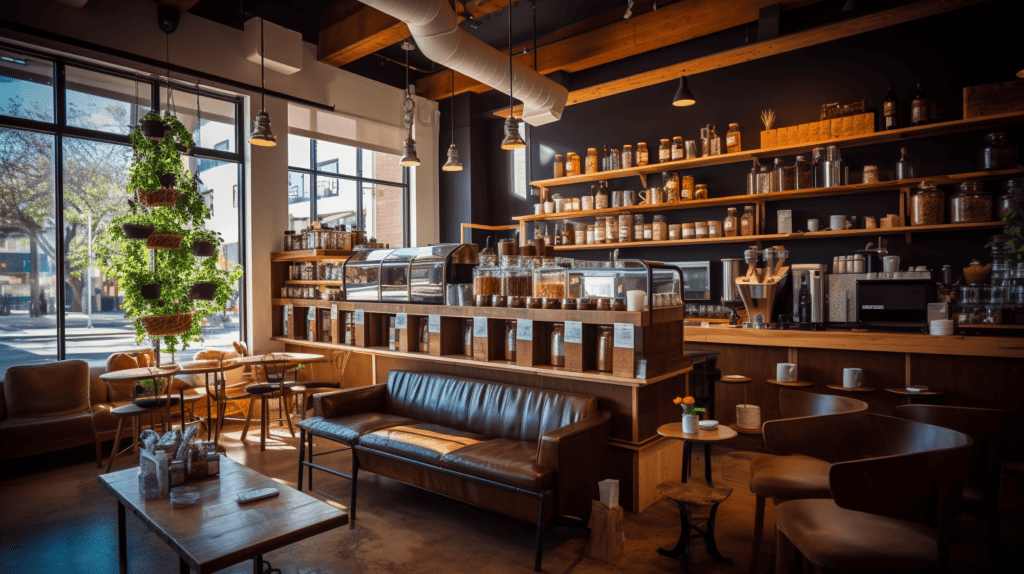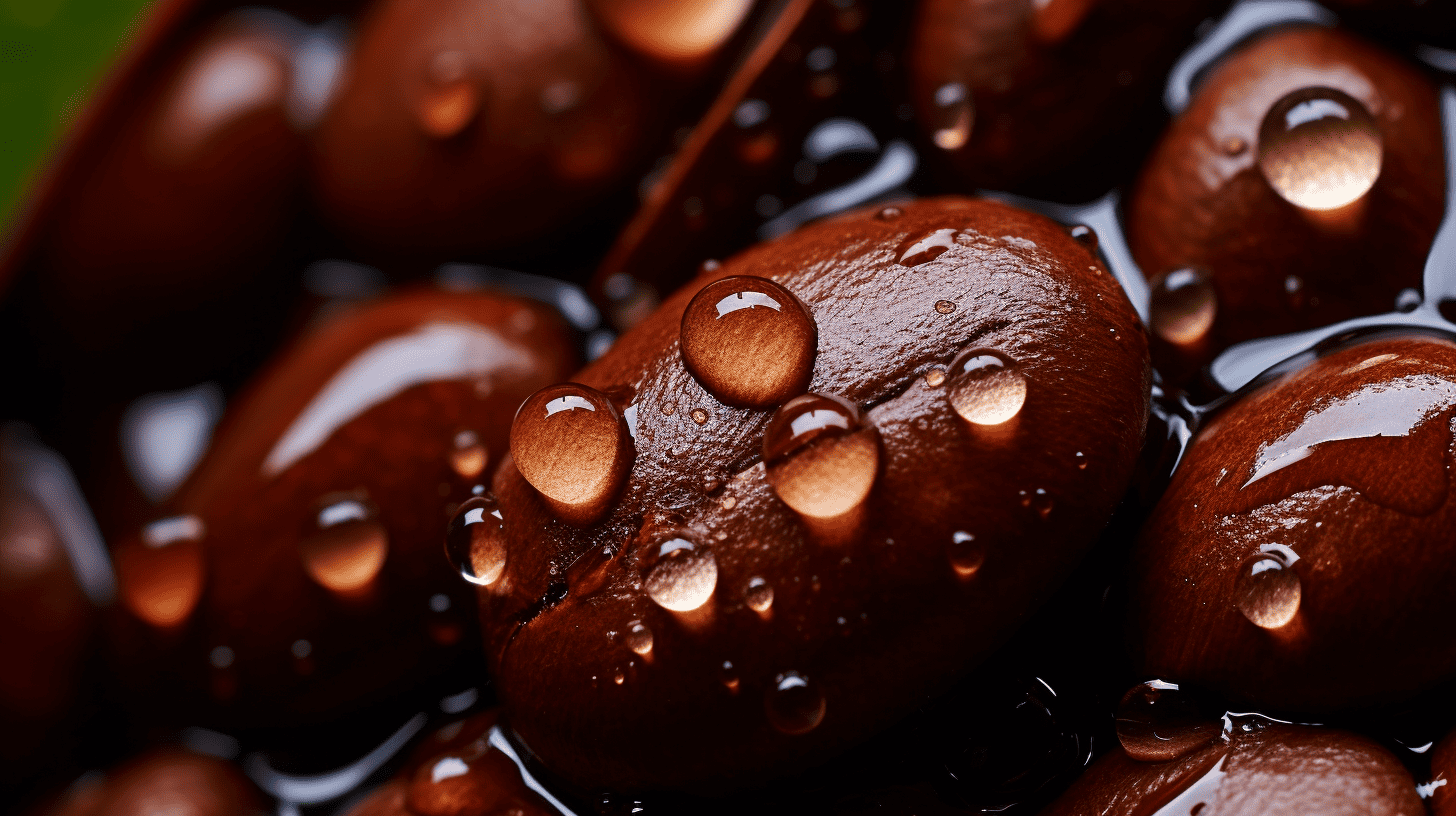Is it cheaper to buy whole coffee beans? Are you a coffee enthusiast baffled about buying whole beans or ground coffee? It’s interesting to note that grinding your own coffee beans has proven more cost-efficient over time.
This article will dissect the price comparison between whole bean and ground coffee, their benefits, and their drawbacks to give you a well-rounded perspective. Let’s dive in and discover if going the entire bean route is indeed cheaper!
Key Takeaways
- Whole bean coffee is generally less expensive per pound than pre-ground coffee, but this may vary.
- Grinding your own coffee beans can be more cost – efficient in the long run because of fresher flavors and longer shelf life.
- Demand, quality, sourcing, processing, and packaging influence the price difference between whole bean and ground coffee.
- Buying whole beans offers fresher flavor, customizable grind size, and longer shelf life.
The Price Comparison: Whole Bean vs. Ground Coffee
You might be wondering which option is more economical whole bean and ground coffee. Let’s break down the price comparison between these two types of coffee.
| Whole Bean Coffee | Ground Coffee | |
|---|---|---|
| Price per pound | Varies, but whole bean coffee tends to be less expensive per pound than pre-ground coffee. However, this is not always the case. | Usually cheaper due to a higher demand and the use of additives which produces a lower quality product. |
| Long-term cost efficiency | Though it may seem more expensive, buying whole beans can be a cost-efficient choice in the long run because grinding your own coffee provides fresher flavors and a longer shelf life. | The lower upfront cost may seem appealing, but you may find yourself buying more often due to a shorter shelf life. |
| Additional costs | You will need to invest in a good grinder. This is an initial cost to consider, but it can be a worthwhile investment for coffee lovers who value taste and freshness. | No additional equipment is needed, making ground coffee a more convenient option for those not wanting to invest in a grinder. |
In essence, whether whole bean coffee or ground coffee is cheaper depends on various factors such as demand, quality, and processing. It’s key to note that while ground coffee may initially cost less, the long-term benefits of whole-bean coffee might make it the more cost-efficient option.
Factors that Influence the Price Difference
The price difference between whole bean and ground coffee is influenced by factors such as demand and supply, quality and sourcing, and processing and packaging.
Demand and supply
The principles of demand and supply influence the price difference between whole coffee beans and ground coffee. The popularity of pre-ground coffee leads to higher demand, which results in lower production costs and a cheaper price tag.
On the other hand, whole bean coffee is less commonly purchased, resulting in lower demand and higher prices. This means that if cost is your main concern, opting for ground coffee will be more budget-friendly.
However, keep in mind that buying whole beans allows you to enjoy fresher flavor and have control over the grind size for a customized brewing experience.

Quality and sourcing
The quality and sourcing of coffee beans can have a significant impact on their price. Higher-quality beans, such as those that are grown in specific regions or under certain conditions, tend to be more expensive.
The way the beans are sourced and processed also plays a role in the final cost. Some companies go above and beyond to ensure they are getting premium quality beans from sustainable sources, which can result in a higher price tag.
On the other hand, lower-quality beans may be cheaper due to less rigorous sourcing standards or mixing different types of beans together. So when considering the cost of whole bean versus ground coffee, it’s important to take into account the quality and sourcing aspects of each option.
Processing and packaging
Coffee processing and packaging play a crucial role in the overall cost of coffee beans. The processes involved, such as sorting, cleaning, drying, and roasting, require time and resources.
Additionally, the packaging materials used to ensure freshness and quality also contribute to the final price. These factors can vary depending on different brands and types of coffee beans available in the market.
So it’s essential to consider how processing and packaging affect the price when comparing whole bean and ground coffee options.
Benefits of Buying Whole Coffee Beans
Buying whole coffee beans offers a fresher flavor, customizable grind size, and longer shelf life. Want to know more about the advantages of grinding your own coffee? Keep reading!
Fresher flavor
Grinding your own whole coffee beans can lead to a fresher flavor in your cup of joe. When you buy pre-ground coffee, it may have been sitting on the shelf for some time, which can cause it to lose some of its aromatic notes and taste.
On the other hand, when you grind whole beans just before brewing, you release all the flavorful oils and compounds locked inside. This results in a richer, more robust taste that is sure to please any coffee enthusiast.
So, if you’re looking for an elevated coffee experience with a fresh and vibrant flavor profile, grinding your own beans is definitely worth considering.
Not only does grinding your own beans give you a fresher flavor, but it also allows you to customize the grind size according to your preferred brewing method. Whether you use a French press or an espresso machine, having control over the coarseness or fineness of the grind ensures optimal extraction and enhances the overall taste of your brew.
Customizable grind size
When you buy whole coffee beans, one of the major advantages is the ability to customize your grind size. This means that you have control over how coarse or fine you want your coffee grounds to be, depending on your brewing method.
Whether you prefer a finer grind for an espresso machine or a coarser grind for a French press, grinding your own beans allows you to achieve the perfect consistency for your desired flavor profile.
With pre-ground coffee, on the other hand, you are limited to whatever grind size has been predetermined by the manufacturer. So if having control over your brew’s strength and taste is important to you, opting for whole beans and grinding them yourself is definitely worth considering.
Longer shelf life
Whole coffee beans have a longer shelf life compared to ground coffee. This is because the beans remain protected by their outer shell, preventing them from coming into contact with air and moisture that can cause degradation.
By purchasing whole beans, you can enjoy fresher-tasting coffee for a longer period of time.

Drawbacks of Buying Whole Coffee Beans
Buying whole coffee beans may require additional equipment, such as a grinder, and can be time-consuming and labor-intensive to grind. Plus, there is the potential for inconsistent results in terms of flavor and brew quality.
Need for additional equipment (grinder)
To fully enjoy the benefits of buying whole coffee beans, you’ll need an additional piece of equipment: a grinder. Grinding your own beans allows you to have complete control over the grind size, resulting in a fresher and more flavorful brew.
While some coffee enthusiasts might see this as an inconvenience, investing in a grinder can actually be cost-effective in the long run. By purchasing whole beans and grinding them yourself, you avoid paying extra for pre-ground coffee and ensure that each cup has the perfect taste and aroma.
So if you’re serious about your coffee experience, consider adding a grinder to your arsenal of brewing tools.
Time and effort required for grinding
Grinding your own coffee beans does require some time and effort. You’ll need to measure out the right amount of beans, set up your grinder, and grind them to the desired consistency.
It may take a few extra minutes each morning compared to using pre-ground coffee. However, many coffee enthusiasts believe that the superior taste and freshness make it worth the extra effort.
So, if you’re willing to put in a little extra time, grinding your own beans can result in a more flavorful cup of coffee.
Potential for inconsistent results
Ground coffee, especially pre-packaged options, can often provide inconsistent results when it comes to flavor and freshness. Since it is already ground, there is no control over the grind size or how recently it was roasted.
This can result in a less-than-ideal cup of coffee lacking the full-bodied taste and aroma many coffee enthusiasts crave. Additionally, ground coffee has a shorter shelf life compared to whole beans as it is more susceptible to staling due to exposure to air.
So if you’re looking for consistently great-tasting coffee with optimal flavor and freshness, grinding your own whole beans is the way to go.
Conclusion on Is It Cheaper To Buy Whole Coffee Beans 💭
When it comes to the cost of coffee, buying whole beans may not always be cheaper than ground coffee. However, grinding your own beans can be more cost-effective in the long run. Ultimately, it’s important to consider both cost and quality when making your coffee purchases.
FAQs on Is It Cheaper To Buy Whole Coffee Beans
1. Are whole coffee beans cheaper than pre-ground coffee?
Yes, whole coffee beans are generally cheaper than pre-ground coffee because they have a longer shelf life and retain their flavor and aroma better.
2. Can I use a regular burr grinder to grind my own coffee beans?
Yes, a regular burr grinder is suitable for grinding coffee beans at home. It allows you to adjust the coarseness of the grind to match your preferred brewing method.
3. How long do whole coffee beans stay fresh?
Whole coffee beans can stay fresh for up to several weeks if stored properly in an airtight container away from heat, light, and moisture.
4. Does grinding my own coffee save money in the long run?
Grinding your own coffee can be more cost-effective in the long run as you only grind what you need each time, reducing waste compared to buying pre-ground coffee that may go stale before it’s used up.





Leave a Reply